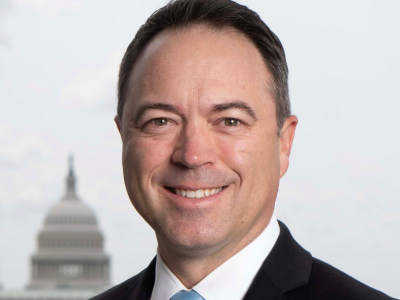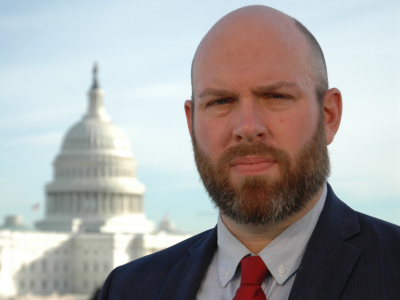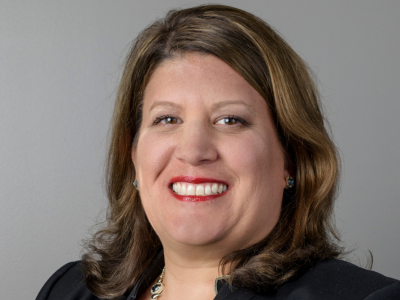

Wildfires, hurricanes and other severe weather have roiled insurance coverage in several states and caused the federal government to take a closer look at the industry. Increased interest from Washington might create tension over jurisdiction but is not likely to dilute state authority over insurance.
California, Florida, Louisiana and Texas – which recently recorded its worst wildfire -- have borne the brunt of natural disasters over the last few years. Members of Congress representing those areas have become active with insurance legislation.
For instance, last week, the House Financial Services Committee approved a bill written by Rep. Maxine Waters, D-Calif. and ranking member of the panel, that would direct the Government Accountability Office to conduct a study of wildfire risk and its impact on homeowner and commercial property policies.
Another bill that the committee was poised to vote on but ultimately postponed due to time constraints would place constraints on the Federal Office of Insurance’s ability to collect data from insurers.
Legislation introduced recently by Rep. Adam Schiff, D-Calif., would establish a federal catastrophe reinsurance program within in the Treasury Department and strengthen the ability of FIO and the Office of Financial Research to monitor the insurance market. The bill appears to be stalled amid insurance industry opposition.
A federal initiative that the industry likes – a national registration system for insurance brokers – continues to be stalled due to lack of nominations for its board.
Federal lawmakers are wading into insurance issues because their constituents are being buffeted by severe weather.

“As members of Congress are hearing more from constituents, they want to show they’re responsive,” said Nathan Riedel (pictured immediately above), senior vice president of federal government affairs at the Independent Insurance Agents and Brokers of America. “You’re seeing greater interest in the factors driving the lack of insurance availability and affordability. The interest in those factors doesn’t mean they want to take regulation away from the states.”
Under the McCarran Ferguson Act of 1945, insurance regulation was delegated to the states. The Dodd-Frank financial reform law in 2010 established the Federal Insurance Office after insurance firms took a big hit in the 2008-09 financial crisis and required a federal bailout, according to an Investopedia analysis. The FIO advises the Treasury secretary on insurance matters, including access to insurance products by underserved communities and consumers.
Birny Birnbaum (pictured immediately below), director of the Center for Economic Justice, wants to give the federal government more latitude to assess the insurance industry because state officials can’t provide timely information on premium increases or coverage cutbacks.

“The failure of state insurance regulators to collect meaningful data has been a problem for decades,” Birnbaum said. “The regulators aren’t [answering] basic questions.”
The National Association of Insurance Commissioners put out a call for data last August, asking insurers to provide information about property markets, coverage gaps and the availability and affordability of insurance.
The NAIC said it didn’t have an update on its data collection efforts, nor did it have a position on the bill to limit the FIO’s ability to gather information from insurers.
“NAIC staff and state regulators work with FIO regularly on a variety of issues to promote insurance carrier solvency and consumer protection,” the NAIC said in a statement. “However, state insurance regulators are and remain the primary regulators of insurance.”
Birnbaum said the NAIC was forced to address information gaps by FIO action.
“It’s one of the massive failures of state-based regulation,” Birnbaum said. “Now that the FIO is stepping up, the NAIC is saying ‘Whoa!’”
Many insurance industry participants don’t see a need for FIO, said Mike Hedge (pictured immediately below), senior director of government relations at the National Association of Insurance and Financial Advisors. He noted it does not have supervisory or regulatory authority.
“Mistrust of the federal government gets in the way of FIO’s mission,” Hedge said. “Insurance commissioners think they know best. They probably do. I don’t see the tension going away.”
Hedge said NAIFA supports FIO in general.
“You at least have a body at the federal level that should understand insurance,” Hedge said.
The insurance industry strongly backs one federal initiative -- the National Association of Registered Agents and Brokers, a clearinghouse that would make it easier to file required paperwork to operate in multiple states.
The NARAB, as it’s known, is stalled because it has not had a board confirmed by the Senate since the bill establishing the platform was signed into law in 2015. The Obama administration nominated 13 people for the NARAB board – eight state regulators and five chosen by industry trade associations – but the Senate never acted, and the slate expired in 2017.
The Trump administration didn’t nominate a board, and the Biden administration has not yet submitted names to the Senate. 
“Everyone continues to see this as a bipartisan, bicameral issue,” said Keri Kish (pictured immediately above), general counsel and policy director at the Wholesale and Specialty Insurance Association. “It remains our fervent hope that there will be nominees. We look forward to seeing [them] soon.”
Independent brokers back NARAB because it streamlines the agent licensing process. One application could open the door to doing business in several states.
“NARAB creates a one-stop shop,” Riedel said. “We think it will be incredibly efficient and benefit the consumer by leading to more choice.”
The problem is NARAB can get lost in the shuffle of dozens of administration nominations for judgeships, executive branch positions and other boards and commissions.
“We keep getting pushed down the line,” Hedge said.
State hegemony on insurance oversight remains firmly in place, lobbyists and advocates say.
Although Schiff’s bill seeks to make insurance more available and less expensive for a wider range of consumers, he’s not trying to upend the industry or it regulatory system, Birnbaum said.
If someone didn’t know the bill was written by Schiff, a progressive Democrat, “you might think it was offered by a free-market Republican,” Birnbaum said. “It emphasizes risk-based pricing and reliance on state-based insurance regulation.”
